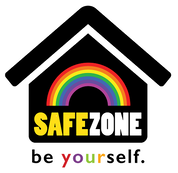
Welcome to Oxnard College's LGBTQIA+ webpage. Oxnard College wants to provide a safe and comfortable environment for the LGBTQIA+ community and their allies.
We strive to create an affirmative supportive space to socialize, find support and encouragement, and to talk about challenges off and on campus.
We are here to create an inclusive environment that supports the needs of our diverse LGBTQIA+ community. We provide support in the form of the Rainbow Resource Center, the Rainbow Café Support Group, and the Rainbow Club.
LGBTQ Scholarships for Tomorrow’s Leaders
Oxnard Community College addresses the needs of the students that identify LGBTQIA+ by:
- Implementing the Preferred Name Policy, which gives LGBTQ+ students the option to use a preferred first name that may be different from their legal name.
- Launching a pronoun guide to help the college be a more inclusive environment and affirm students’ identity.
- Providing Safe Zone training to employees so they can provide a safe and inclusive space for LGBTQ+ students and colleagues.
- Hosting a weekly Rainbow Café to provide a safe space for LGBTQ+ students to share their stories and meet new people.
- Creating an open, safe and inclusive space at the Rainbow Resource Center for OC's LGBTQIA+ and allies community, and providing support and resources in collaboration with local LGBTQAI+ agencies.
- Offering Introduction to LGBTQ+ Studies (SJS R130) as part of the college’s social justice studies curriculum.
- Implementing All Gender Restrooms to accommodate our diverse student population
WHAT IS LGBTQIA+?
LGBTQIA+ is an abbreviation for lesbian, gay, bisexual, transgender, queer or questioning, intersex, asexual, and more. While the plus in LGBTQIA+ may represent other sexual identities such as pansexual, gender fluid, queer, bi-curious, and so many more, it's also a wider signifier of inclusion and acceptance for all experiences.
LESBIAN 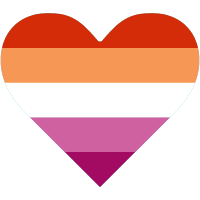
A woman whose enduring physical, romantic, and/or emotional attraction is to other women. Some lesbians may prefer to identify as gay or as gay women, or also as queer.
GAY 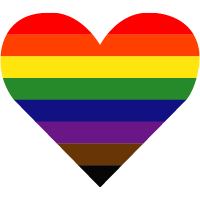
The adjective describes people whose enduring physical, romantic, and/or emotional attractions are to people of the same sex.
BISEXUAL 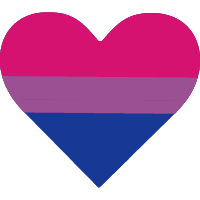
A person who can form enduring physical, romantic, and/or emotional attractions to those of the same gender or more than one gender. People may experience this attraction in differing ways and degrees over their lifetime.
TRANSGENDER 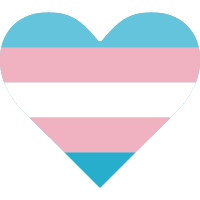
An umbrella term for people whose gender identity and/or gender expression differs from what is typically associated with the sex they were assigned at birth. People under the transgender umbrella may describe themselves using one or more of a wide variety of terms— including transgender or nonbinary.
QUEER 


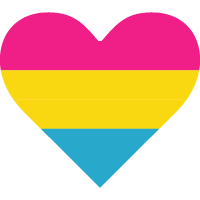
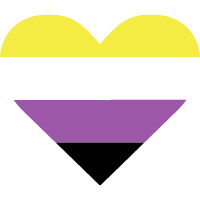
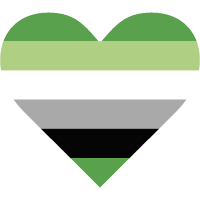

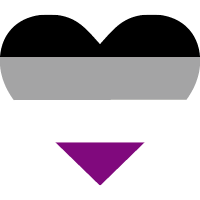
An adjective used by some people whose sexual orientation is not exclusively heterosexual or straight. This umbrella term includes people who have nonbinary, gender-fluid, or gender nonconforming identities. Once considered a pejorative term, queer has been reclaimed by some LGBTQIA+ people to describe themselves; however, it is not a universally accepted term even within the LGBTQIA+ community.
QUESTIONING
Sometimes, when the Q is seen at the end of LGBT, it can also mean questioning. This term describes someone who is questioning their sexual orientation or gender identity.
INTERSEX 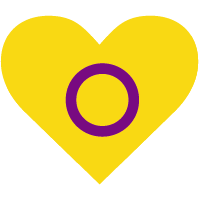
An adjective used to describe a person with one or more innate sex characteristics, including genitals, internal reproductive organs, and chromosomes, that fall outside of traditional conceptions of male or female bodies. Do not confuse having an intersex trait with being transgender. Intersex people are assigned a sex at birth — either male or female — and that decision by medical providers and parents may not match the gender identity of the child. Not all intersex folks identify as being part of the LGBTQIA+ community.
ASEXUAL 

The adjective describes a person who does not experience sexual attraction. Sometimes shortened to “ace,” it is an umbrella term that can also include people who are demisexual, meaning they do experience some sexual attraction; graysexual, meaning those who may not fit the strictest definition of the word asexual; and aromantic, meaning they experience little to no romantic attraction and/or has little to no desire to form romantic relationships.
+ PLUS 
The ‘plus’ is used to signify all of the gender identities and sexual orientations is a symbol that represents additional identities.
Exploring your sexuality can be a big emotional challenge. It becomes even more challenging when your family, friends, and community are not supportive or acceptive of your gender identity and sexual preference.
Being LGBTQIA+ is often associated with a lot of social pressures and discrimination that can cause emotional distress. If you or someone you know is struggling with understanding their sexuality, facing social pressures related to their sexuality, or coming out, there are things you can do.
- Figuring it out-Sometimes figuring out who you are attracted to takes time. Identifying your gender identity and sexual preference is not always clear. There is no rush. Take your time and continue to explore. If questioning your sexuality is making you feel anxious or depressed don't be afraid to reach out and ask for help. We offer free counseling here at the health center.
- Coming out and Living out- Accepting and understanding sexuality for gay or straight individuals is a learning experience. It is important to be honest with yourself and honor who you are by allowing others to know your true identity. There is no pressure or time frame. You get to decide when you are ready and who you want to "come out" to. Start by choosing friends or family in your life that you feel safe with and you think will be supportive and understanding. You are not alone in this process. "Coming out" for many can be scary or stressful. It may help to talk to others that have gone through a similar experience.
- Helping Out-If a family member or friend confides in you about their sexuality make sure you listen and are supportive. Let them know you are there for them and accept who they are. If you see they are experiencing emotional distress suggest counseling or encourage them to check out the many resources we have compiled.
We are all responsible for stopping discrimination and bullying. If you see someone being harassed or harmed offer your assistance to that individual and report it to an authority figure that can help. If you witness this type of discrimination on campus please report it right away. You can report it to your professor, dean of students, or campus police. (Title IX Information)
At Oxnard College you find the following on campus resources:
Rainbow Resource Center (RRC):
Mondays 11am -12pm, 1pm-5pm
For all OC students who identify as LGBTQIA+ and allies to:
Learn about local LGBTQIA+ resources
Promote health and mental wellness
Advocate for an inclusive environment
Rainbow Café Support Group:
Wednesdays, Thursdays 4pm-5pm
For all OC students who identify as LGBTQIA+ and allies:
To create a supportive community to socialize
Find support and encouragement
To talk about the challenges off and on campus
- Prism Club: still in progress
- Mental Health Services at OC Student Health Center: View Appointment Info
Local Resources
Diversity Collective of Ventura County
(From its website.) Diversity Collective Ventura County is a community based non profit 501c3 organization. Promoting advocacy, education, and mental and physical health for the LGBTQ community in Ventura County, California via our community resource center, programs and community events. We are the parent organization of Ventura County Pride, AIDS Walk Ventura and The Diversity Gala. All proceeds raised through fundraising efforts go to fund DCVC and it's community programs.
Rainbow Umbrella
Weekly meetings for youth age 13-23
(805) 836-0099
The Coalition for Family Harmony
Drop-in Support Group open to all people 18 and over
who identify as Transgender or Gender-fluid. Free of charge.
(805) 983-6014
Pride Clinic, Santa Paula West
254 W. Harvard Blvd. #C
For more information, please call (805) 299-0200
PFLAG Ventura
This link will take you to an outline of the journey to acceptance that LGBT* individuals and their families experience, described in stages.
Interface Children and Family Services
Runaway and homeless youth shelter services (ages 12-17)
Facebook group
Oxnard LGBTQIA+ Community
https://www.oxnardlgbtq.org/
Gay Straight Alliances of California Network
https://gsanetwork.org/gsa-network-of-california/
One Step a La Vez
https://www.osalv.org/projectpride.html
Phone Lines
www.211la.org/Suicide Hotline: 1-800-273-TALK or go to www.suicidepreventionlifeline.org
988 Suicide & Crisis Lifeline
Mental Health Crisis: 911 or 866-998-2243
Medical Emergency: 911
Abuse/Rape/Domestic Violence: 805-656-1111
Alcohol/Drug Services: 805-577-1724
Information and Referral Services
Ventura County: Dial 211 or go to http://www.211ventura.org
LA County: https://www.211la.org/
National Resources
Homeless Youth Handbook
The Homeless Youth Handbook provides homeless youth and youth-serving organizations with resources state-by-state, and has LGBTQ+ specific section.
The Trevor Project
The Trevor Project is an excellent online resource for LGBTQ people and allies. It has 24/7 phone, text, and chat lines, and all kinds of other resources.
Lambda Legal
Lambda Legal describes itself as "...the oldest and largest national legal organization whose mission is to achieve full recognition of the civil rights of lesbians, gay men, bisexuals, transgender people and those with HIV through impact litigation, education and public policy work."
The National Centre for Transgender Equality
According to its website: "The National Center for Transgender Equality is a national social justice organization devoted to ending discrimination and violence against transgender people through education and advocacy on national issues of importance to transgender people.
By empowering transgender people and our allies to educate and influence policymakers and others, NCTE facilitates a strong and clear voice for transgender equality in our nation's capital and around the country."
Trans lifeline
US: (877) 565-8860
From the website: "This line is primarily for transgender people experiencing a crisis. This includes people who may be struggling with their gender identity and are not sure that they are transgender. While our goal is to prevent self harm, we welcome the call of any transgender person in need. We will do our very best to connect them with services that can help them meet that need. If you are not sure whether you should call or not, then please call us. Our hotline is staffed by the true experts on transgender experience, transgender people themselves. Our volunteers are all trans identified and educated in the range of difficulties transgender people experience. Our volunteers are dedicated to improving the lives of transgender people."
|
|
Booklet
|
This pamphlet, produced by Each Mind Matters is a helpful guide to understanding the basics of sexual orientation, gender identity, and gender expression. It offers suggestions to aid in the "coming out" process, as well as some guidance about if and when mental health is in jeopardy/what to do to get help.
Q Christian Fellowship formerly The Gay Christian Network
https://www.qchristian.org/
From the website: "
We recognize that the church has not and does not always make it easy for those who identify as lesbian, gay, transgender, bisexual, same-gender loving, queer, pansexual intersex, asexual, genderfluid, or questioning to reconcile these aspects of themselves with their Christian identity. We are witnesses to both the harm that faith communities can inflict, and the hope and healing that is possible.
By gathering together, embracing our differences, and celebrating our shared trust in God’s love in Christ, we seek to point toward the full inclusivity to which God is calling us. Just as Jesus led by example in his life on earth, we are dedicated to living out a transformative example of fellowship in the world.
National Resource Center on LGBT Aging
SAGE (Services & Advocacy for Gay, Lesbian, Bisexual, and Transgender Elders)
If you want to change pronouns/identifying gender/legal name visit:
Request to Change Personal Information: Fill out request form
I see the SAFEZONE placard in various places around campus. What does it signify?
The SAFEZONE placard identifies the bearer or poster as someone that pledges commitment to supporting lesbian, gay, bisexual, trans*, queer, questioning, and ally individuals. In order to earn the right to post or bear the placard, attendance at a special SAFEZONE training is required.
I have transitioned and would like to change the personal information on my school records. How do I do that?
To change your personal information in your VCCCD records you just need to complete and submit the Request to Change Personal Information form.
I have not changed my name legally yet, but wish to have a different name on class rosters. How do I do that?
To change your name as it appears on class rosters, simply send an email from your @my.vcccd.edu to ocadmissions@vcccd.edu
Use the following verbiage:
To Whom it May Concern in Admissions and Records,
My name as it appears in OC records and class rosters is [fill in your legal name]. I would like my name to appear on class rosters as [fill in the name you want to see on class rosters] from now on.
If you have any questions, please contact Joel Diaz.
I graduated from Oxnard College before I transitioned, and would like a new diploma with my correct name on it. How do I do that?
To obtain a new diploma with the correct name on it, you complete and submit the Duplicate Degree/Certificate Request form.
I have transitioned and would now like to change my birth certificate. What is the procedure?
According to Lambda Legal, it depends upon the state, each with its own laws, procedures, and fees. By the way, Lambda Legal is worth a visit: www.lambdalegal.org. This non-profit organization has all kinds of state-by-state info on legal rights for LGBTQ people covering topics such as document change, healthcare, marriage, parenting, and more.
How would a trans man or woman make a gender change in a driver's license, passport, or other government-issued documents?
The National Centre for Transgender Equality is a one-stop shop for information on both federal- and state-issued document changes, along with downloadable forms for many requests.
Why do we need to use all the terms (lesbian, gay, bisexual, pansexual, tran*, queer, etc.)? Don't they divide instead of unite?
The terms for the community of people that encompasses people who are lesbian, gay, bisexual, transgender, queer, intersex, and asexual are as broad as that community itself: As society’s understanding, recognition, and inclusion of diverse sexual identities and gender expressions has grown, so has its acronym, terminology, and flags.
The acronym LGBTQ only covers about one-third of the labels that self-described members of the LGBTQ community use to define their sexual orientation and gender identity. While talking with any member of the LGBTQ community might feel more satisfying than talking to a group of non-LGBTQ people, the various experiences different groups within the community have makes it important to identify people who see themselves as part of one of those more specific groups.
Choosing labels for themselves is a powerful way for individuals to say who they are and start the process of finding support and community from people like them. But being labeled in ways they don’t want to be, or being doubted when they express a desire to use different labels than they used to, can heap hurt and frustration on top of a teen who might already be struggling to find their place in the world.
A good approach to navigating the long list of LGBTQ labels is to familiarize yourself with them.
Readings and Stories
Understanding the Sex/Gender/Sexuality Spectrum
Huffpost
Here’s What This Asexual Homoromantic Couple Wants You To Know About Their Lives
TED Talk
Why we need gender neutral bathrooms.
The Genderbread Person
Scientific American: Visualizing Sex as a Spectrum
Historical Look at Gender and Colonialism
Two Spirit and LGBTQ+ Identities Today and Centuries Ago
The “Deviant” African Genders That Colonialism Condemned
LGBTQ+
Buzzfeed
17 Rules That LGBTQ+ People Follow that Most Straight People are Clueless About
18 LGBTQ+ books recommended on Buzzfeed
20 Queer Podcasts recommended on Buzzfeed
Research Based on Cass Model
If you like reading research, check this out!
Other
Radiolab (NPR)
The Gondolier
Understanding LGBTQ+ legislation and advocacy:
The Human Rights Campaign Resources
LGBTQ+ Voting Barriers: Results from the 2019 LGBTQ+ Voter Experience Study
Did you know "more than 10% of LGBTQ+ voters, more than a quarter of transgender voters, and over 40% of BIPOC transgender voters were unable to vote due to being unknowingly dropped from the voter rolls" (HRC)? Read more about voting barriers for the LGBTQ+ community.
The Equality Act
The Equality Act would provide consistent and explicit anti-discrimination protections for LGBTQ+ people across key areas of life, including employment, housing, credit, education, public spaces and services, federally funded programs, and jury service. The Equality Act has already passed in the House but needs to pass in the Senate. Learn more about how you can help advocate for the Equality Act.
Myths and Facts: Battling Disinformation About Transgender Rights
Lawmakers across the country have recently proposed a number of bills that target the transgender community. Learn more about the truth behind these bills.
State Maps
See state maps that show the laws and policies that affect LGBTQ+ people in areas of non-discrimination, healthcare, youth, and more.
Specific Anti-LGBTQ+ bill examples
Refusal of medical care in Ohio
Ohio's 'Don't Say Gay' Bill
Texas anti-transgender medical treatments law explained
Legislation Affecting LGBTQ+ People
240 Anti-LGBTQ+ Bills have been filed in 2022 (as of March 20th)
Legislation tracker
Anti-LGBTQ+ Bills in 2022
Anti-LGBT Curriculum Laws
Advocacy
LGBTQ+ Conversion Therapy
Conversion therapy costs an estimate $9.23 billion dollars a year in the United States. Read more on why.
Map of Conversion Therapy Laws in the United States
Statistics
Gallup Polls
JANUARY
National Mentoring Month
Third week in January | No Name-Calling Week
January 27 | International Holocaust Remembrance Day
FEBRUARY
Black History Month
February 14 | Valentine’s Day
Week after February 14 | Aromantic Awareness Week
February 20 | World Day of Social Justice
MARCH
Women’s History Month
Bisexual Health Awareness Month
March 1 | Zero Discrimination Day
March 8 | International Women’s Day
March 21 | International Day for the Elimination of Racial Discrimination
March 31 | International Transgender Day of Visibility
APRIL
Sexual Assault Awareness Month
April, day varies | Day of Silence
April 18 | National Transgender HIV Testing Day
April 22 | Earth Day
April 26 | Lesbian Visibility Day
MAY
Asian/Pacific American Heritage Month
Jewish American Heritage Month
Mental Health Awareness Month
May 17 | International Day Against Homophobia, Transphobia, and Biphobia
May 18 | World AIDS Vaccine Day
May 21 | World Day for Cultural Diversity for Dialogue and Development
May 22 | Harvey Milk Day
May 24 | Pansexual and Panromantic Visibility Day
JUNE
LGBTQA+ Pride Month
June 5 | World Environment Day
June 12 | Pulse Night of Remembrance
June 19 | Juneteenth
June 26 | LGBT Equality Day
June 26 | Anniversary of the Legalization of Same-Sex Marriage in the U.S
June 27 | National HIV Testing Day
June 28 | Stonewall Riots Anniversary
JULY
Disability Pride Month
July 14 | International Non-Binary People’s Day
AUGUST
August 9 | International Day of the World’s Indigenous Peoples
August 26 | Women’s Equality Day
SEPTEMBER
National Hispanic Heritage Month (Sept. 15 to Oct. 15)
September 15 | International Day of Democracy
Starting the Sunday before September 23 | Bisexual Awareness Week
September 23 | Celebrate Bisexuality Day
Last week in September | Ally Week
OCTOBER
LGBTQA+ History Month
Domestic Violence Awareness Month
National Hispanic Heritage Month (Sept. 15 to Oct. 15)
Filipino American History Month
National Bullying Prevention Month
First full week in October | Mental Illness Awareness Week
October 10 | World Mental Health Day
October 11 | National Coming Out Day
October 19 | Spirit Day; LGBT Center Awareness Day
October 26 | Intersex Awareness Day
Last full week in October | Asexual Awareness Week
NOVEMBER
Native American Indian/Alaska Native Heritage Month
First two full weeks in November: | Transgender Awareness Week
November 8 | Intersex Day of Remembrance
November 20 | International Transgender Day of Remembrance
November 25 | International Day for the Elimination of Violence Against Women
DECEMBER
December 1 | World AIDS Day
December 3 | International Day of Persons with Disabilities
December 8 | Pansexual/Panromantic Pride Day
December 10 | Human Rights Day
Resolution in Support of LGBTQIA+ Students and Employees Spring 2025
Resolution in Support of LGBTQIA+ Students and Employees Spring 2025
Resolution Number 01.02
Contact Erin Marquez-Lawley and Dolores Ortiz
WHEREAS, LGBTQIA+ students experience high rates of bullying, victimization, and harassment at school on the basis of their actual or perceived sexual orientation or gender identity [2]; LGBTQIA+ students also report higher rates of anxiety and depression [2, 3]; the dangerous rhetoric surrounding federal and state-level anti-transgender policies, take a measurable toll on the health and safety of transgender young people in the United States [4, 5];
WHEREAS; This bullying, victimization, and harassment has led to negative educational outcomes for LGBTQIA+ students; LGBTQIA+ students have higher rates of dropping out, higher rates of absenteeism, and lower transfer aspirations [3];
WHEREAS, This discrimination and stigma and/or fear of it, continues to make it difficult to accurately measure the size of the LGBTQIA+ student population on California Community College campuses [3], and fully understand their unique challenges; this means that students are less likely to seek assistance when facing LGBTQIA+ specific challenges, further deviating their pathway to completion, transfer, and gainful employment, as well as compromising the validity of self-reported data;
WHEREAS, Faculty, Classified, and Administrators throughout the country are negatively impacted and further concerned about the current administration’s executive orders and policy proposals to end the rights of LGBTQIA+ people; educational personnel are often the primary sources of support, resources, and information to assist and support students and student learning, which includes their social and emotional health [1];
RESOLVED, That the Oxnard College Academic Senate recognizes it is the right of every student, regardless of gender identity, gender expression, or sexual orientation, to access a higher education; the Oxnard College Academic Senate recognizes that there are faculty, staff, and management of the highest caliber who are LGBTQIA+, and that all employees are valued members of the school community regardless of their gender identity, gender expression, or sexual orientation; the Oxnard College Academic Senate supports educational and work environments that celebrate our different identities; integrity in how we treat others; and courage to do what’s right by listening to, learning from, and respecting diverse viewpoints;
RESOLVED, That the Oxnard College Academic Senate reaffirms its support for LGBTQIA+ students and educators in the California Community College system, the other segments of education in California, and across the nation and conveys this affirmation to the Chancellor of the Ventura County Community College District, the Chancellor of the California Community Colleges, the Board of Governors, and other interest-holders both in the State of California and nationally;
RESOLVED, That the Oxnard College Academic Senate will work to improve the welcoming and safe school environment for our LGBTQIA+ students, faculty, staff, and management, which makes our school community more welcome and safer for all; the Oxnard College Academic Senate will refer LGBTQIA+ students in need of resources or student support services to the Oxnard College Student Health Center, and/or other student services programs as applicable; and/or submit a BICT report to contribute to a centralized response which aids in the intervention for students of concern;
RESOLVED, That the Oxnard College Academic Senate will advocate for resources and invest in intentional collaboration between campus LGBTQIA+ organizations and mental health centers to ensure that mental health services are inclusive and affirming of LGBTQIA+ students, including: cultural competency training (Diversity Collective P.R.I.D.E. Training, Rainbow Inclusivity), creating visible and welcoming spaces within mental health facilities (Ally door and email stickers), tailored support groups (Rainbow Café), and LGBTQIA+ inclusive resources (Library, Rainbow Club, Teaching & Learning Center).
1. “Adult LGBTQ+ Role Models in the Lives of LGBTQ+ Young People.” The Trevor Project, 31 Jan. 2025, www.thetrevorproject.org/research-briefs/adult-lgbtq-role-models-in-thelives-of-lgbtq-young-people/
2. “Anti-LGBTQ+ School Policies and LGBTQ+ Young People.” The Trevor Project, 5 Feb. 2025, www.thetrevorproject.org/research-briefs/anti-lgbtq-school-policies-and-lgbtq-youngpeople/
3. LGBTQ+ Legislative Report, https://www.cccco.edu/-/media/CCCCOWebsite/docs/report/lgbtqprogramsreporta11y.pdf?la=en&hash=D599E854D169C7DDF6 E63AABBF1362D02E52162E Accessed 7 Mar. 2025.
4. Lee, Wilson Y., et al. “State-level Anti-Transgender Laws Increase Past-Year Suicide Attempts Among Transgender and Non-Binary Young People in the USA.” Nature Human Behaviour, vol. 8, no. 11, 26 Sept. 2024, pp. 2096–2106, https://doi.org/10.1038/s41562-024-01979- 5
5. Nath, Matthews R., et al. “2024 U.S. National Survey on the Mental Health of LGBTQ+ Young People.” The Trevor Project, 31 Jan. 2025, www.thetrevorproject.org/survey-2024
